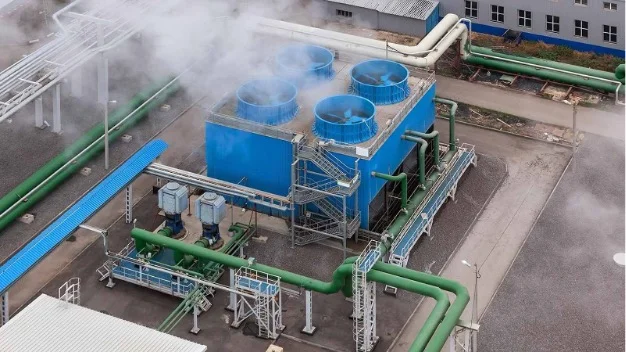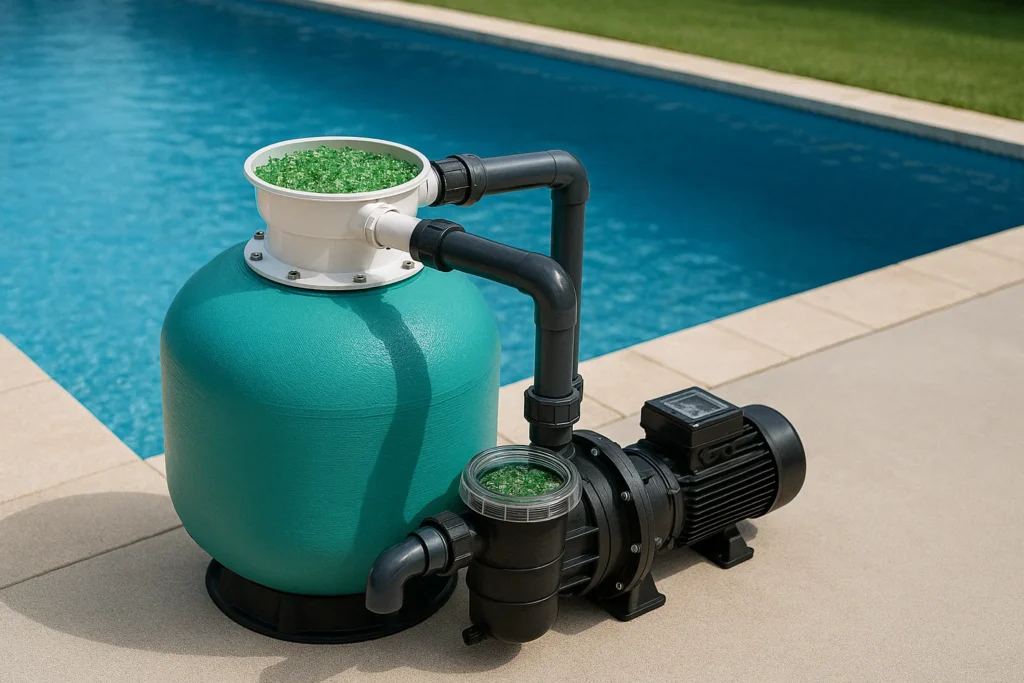
In the ever-present quest for high filtration performance, the water & wastewater treatment industry has seen a shift towards glass filtration media, particularly those made from recycled glass.
While green-coloured recycled glass, often sourced from beer bottles and other used glass products, has garnered significant attention, there is a growing case for the use of virgin glass media.
This blog delves into the benefits of white or transparent virgin glass media and why it should be adopted for superior performance in water and wastewater treatment.
Understanding Glass Filtration Media
Glass filtration media is manufactured by processing glass into uniform granules that serve as an alternative to sand in filtration systems. These granules have a unique structure that enhances their filtration capabilities. Recycled glass media is typically green due to the source materials, while virgin glass media, made from unused glass directly sourced from factories, is white or transparent.
Superior Filtration Efficiency of Virgin Glass media
One of the primary advantages of virgin glass media is its superior filtration efficiency. The uniformity and purity of virgin glass allow for a more consistent and effective filtration process. Unlike recycled glass, which can contain impurities and colorants that may affect its performance, virgin glass is free from contaminants. This results in a higher removal rate of TSS and turbidity, ensuring cleaner water output.
Virgin glass media has a more consistent granule size and shape, which contributes to its enhanced filtration performance. The uniformity ensures a stable and predictable filtration bed, reducing the chances of channelling and bypass, common issues in filtration systems using less uniform media. This leads to a more reliable and efficient filtration process, essential for maintaining high water quality standards.
Durability and Longevity
Another significant benefit of virgin glass media is its durability. Glass, by nature, is resistant to chemical and physical degradation. Virgin glass media, being free from the wear and tear associated with recycled materials, offers a longer lifespan compared to its recycled counterparts. This increased durability translates to lower replacement costs and reduced downtime for filtration systems, making it a cost-effective solution in the long run.
NSF Certification and Purity
A critical advantage of virgin glass media is its ability to achieve NSF certification. The NSF (National Sanitation Foundation) certification is a mark of quality and safety, ensuring that a product meets rigorous standards for health and environmental safety.
Virgin glass, having never been used before, is inherently free of contaminants and impurities that might be present in recycled glass. This purity makes it the perfect filtration media for applications where the highest water quality is paramount, such as drinking water, swimming pools, food and beverage (F&B) industries, and other highly quality-conscious sectors.
Environmental Impact
While the use of recycled glass media supports recycling efforts and reduces waste, virgin glass media also offers environmental benefits. The production of virgin glass media can be optimized to minimize energy consumption and emissions.
Moreover, the longer lifespan of virgin glass media means fewer replacements and less waste generation over time. When considering the entire lifecycle of the filtration media, virgin glass can present a more sustainable option.
Consistent Quality and Performance
Virgin glass media provides consistent quality and performance, a critical factor in water and wastewater treatment applications. The manufacturing process of virgin glass can be tightly controlled, ensuring that each batch meets stringent quality standards.
This consistency is crucial for industries where water quality must be maintained at all times, such as in municipal water treatment plants, industrial processes, and aquaculture.
Aesthetic and Practical Advantages
The white or transparent appearance of virgin glass media can also offer aesthetic and practical advantages. In applications where the visual aspect of the filtration media is important, such as in aquariums or decorative water features, the clean and neutral look of virgin glass media can be preferred.
Additionally, the transparency allows for easy inspection and monitoring of the filtration system, ensuring optimal performance and timely maintenance.
The adoption of glass media in water and wastewater treatment represents a significant advancement in filtration technology. Its superior filtration efficiency, durability, consistent quality, and environmental benefits make it an ideal replacement for conventional sand media.
As the demand for cleaner and safer water continues to rise, embracing innovative solutions like virgin glass media will be crucial in meeting these challenges and ensuring sustainable water management practices.
Get in touch with us at info@purewaterent.net, as we help industries and communities strive for cleaner, efficient and economical water solutions.





